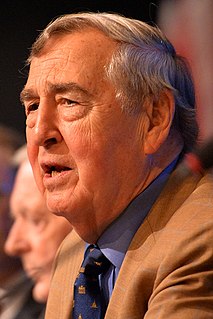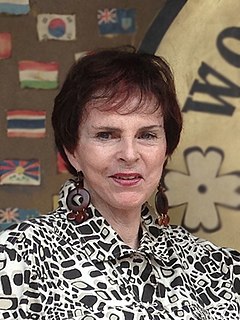A Quote by Thucydides
Thucydides, an Athenian, wrote the history of the war between the Peloponnesians and the Athenians, he began at the moment that it broke out, believing that it would be a great war, and more memorable than any that had preceded it.
Related Quotes
I began to think of war, even so-called "good wars" like World War II, as corrupting everybody. Violence begetting violence. The good guys beginning to act like the bad guys. And when I studied the history of wars, it seemed to me that that was the case. Athens vs. Sparta in the Peloponnesian War. The Athenians presumably the democratic state. The Spartans the totalitarian state. But as the war went on, the Athenians began to act like the Spartans. They began committing atrocities and cruelties. So I saw this as a characteristic of war, even so-called "good wars."
In an all-out nuclear war, more destructive power than in all of World War II would be unleashed every second during the long afternoon it would take for all the missiles and bombs to fall. A World War II every second-more people killed in the first few hours than all the wars of history put together. The survivors, if any, would live in despair amid the poisoned ruins of a civilization that had committed suicide.
You cannot qualify war in harsher terms than I will. War is cruelty, and you cannot refine it; and those who brought war into our country deserve all the curses and maledictions a people can pour out. I know I had no hand in making this war, and I know I will make more sacrifices to-day than any of you to secure peace.
Now at this very moment I knew that the United States was in the war, up to the neck and in to the death. So we had won after all! ... How long the war would last or in what fashion it would end no man could tell, nor did I at this moment care ... We should not be wiped out. Our history would not come to an end ... Hitler's fate was sealed. Mussolini's fate was sealed. As for the Japanese, they would be ground to a powder. All the rest was merely the proper application of overwhelming force.
When a rapidly rising power rivals an established ruling power, trouble ensues. In 11 of 15 cases in which this has occurred in the past 500 years, the result was war. The great Greek historian Thucydides identified these structural stresses as the primary cause of the war between Athens and Sparta in ancient Greece. In his oft-quoted insight, "It was the rise of Athens and the fear that this inspired in Sparta that made war inevitable."
Dachau has been my own lifelong point of no return. Between the moment when I walked through the gate of that prison, with its infamous motto, 'Arbeit Macht Frei,' and when I walked out at the end of a day that had no ordinary scale of hours, I was changed, and how I looked at the human condition, the world we live in, changed ... Years of war had taught me a great deal, but war was nothing like Dachau. Compared to Dachau, war was clean.
The intelligence community is so vast that more people have top secret clearance than live in Washington. The U.S. will spend more on the war in Afghanistan this year, adjusting for inflation, than we spent on the Revolutionary War, the War of 1812, the Mexican-American War, the Civil War and the Spanish-American War combined.
Liberty is not about class war, income war, race war, national war, a war between the sexes, or any other conflict apart from the core conflict between individuals and those who would seek power and control over the human spirit. Liberty is the dream that we can all work together, in ways of our choosing and of our own human volition, to realize a better life.
We are constantly trying to cope with what our fathers or our grandfathers did. I wrote the book 'Great War of Civilization,' and my father was a solider in the First World War which produced the current Middle East - not that he had much to do with that - but he fought in what he believed was the Great War for Civilization.
In the middle of the nineteenth century, the United States embarked on a new relationship with death, entering into a civil war that proved bloodier than any other conflict in American history, a war that would presage the slaughter of World War I's Western Front and the global carnage of the twentieth century.
War is a great destroyer. And human history has arrived at a pivotal moment. We can choose a path built on cooperation, where our caring and sharing side uplifts us, or we can continue to embrace a worldview where domination using violence imprisons us in cycles of killing and destruction. I'm a biologist, and war is not genetically fixed. War is a cultural invention. It's time to end this abomination, and this World Beyond War movement is uniquely focused on unifying the human community to create one of the biggest revolutions in history. I'm in. Join us!






































